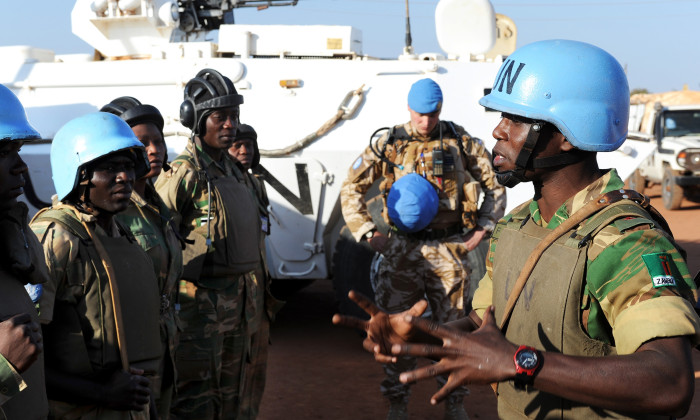Robust Interventions
The UN defines robust peacekeeping as “the use of force by a UN peacekeeping operation […] to defend its mandate against spoilers whose activities pose a threat to civilians or risk undermining the peace process“. The development of robust peacekeeping was a consequence of the negative experiences in the 1990s, in particular in Bosnia and Herzegovina and in Rwanda. Due to insufficient resources and the lack of a clear legal basis, these missions were incapable to fully protect the local population and themselves. The overwhelming majority of multidimensional UN missions today has robust mandates. However, civilian OSCE and EU missions are never “robust” and EU military missions only rarely so. Robust mandates require a Security Council authorization under Chapter VII of the UN Charter.
For a number of years, there has been a tendency towards increasingly robust mandates in areas of operation where armed conflicts continue despite the deployment of a peace operation. Since 2013, the UN mission in the Democratic Republic of the Congo (MONUSCO) has had the mandate to “neutralize” armed militias with its Force Intervention Brigade. UNMISS in South Sudan was reinforced by a Regional Protection Force from 2016-2021, whose tasks included the protection of access to the capital Juba, the protection of the airport and other key locations, and the prevention of attacks on the civilian population, humanitarian workers, UN personnel and UN protection zones.
The overwhelming majority of multidimensional UN missions today has robust mandates, e.g.:
- MONUSCO (Democratic Republic of the Congo)
- MINUSCA (Central African Republic)
 © Tim McKulka
© Tim McKulka
Special forces are not necessarily an integral part of a UN mission. The French Opération Licorne cooperated closely with the UN mission in Côte d’Ivoire (UNOCI) for the protection of civilians and UN personnel. In the Democratic Republic of the Congo, EU missions supported the UN in the stabilization of two crisis situations (Opération Artemis in 2003 and EUFOR RD Congo in 2006). However, the EU also deployed missions with a robust mandate without a UN presence in the country, i.e. to Chad and the Central African Republic (EUFOR Chad/RCA, 2008-09) and to Bosnia and Herzegovina (EUFOR Althea, 2004-12).
Finally, the missions of various African regional organizations and coalitions targeting terrorist groups and militias can be considered robust. These include the AU-led ATMIS mission in Somalia, the Multinational Joint Task Force in the Lake Chad regionand G5 Sahel Joint Force (FC-G5S).
As of 02.08.2023